Borrow From Art Deco for Living Room Glam
http://decor-ideas.org 05/13/2015 05:13 Decor Ideas
The 1920s were optimistic years, when mass production took off, exotic materials became more commonplace and decadent design flourished. And the art deco period — born in the mid-1920s and characterized by strong geometric lines and dramatic juxtapositions of reflective surfaces with luxurious textures — is possibly one of the most influential in interior design. Whether you want to cherry-pick elements of art deco style or jump in headfirst to re-create the era, you can find inspiration in these living rooms and start planning your own makeover.
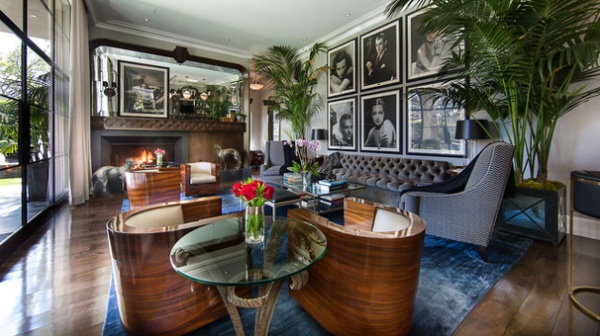
Sprinkle in some Hollywood glamour. The 1920s and 1930s were the start of Hollywood’s golden age, so bring in some cinematic touches with your own wall of fame, featuring black and white prints of your favorite film stars. These curved, polished, hardwood chairs are pure deco decadence and contrast well with the plush buttoned sofa.
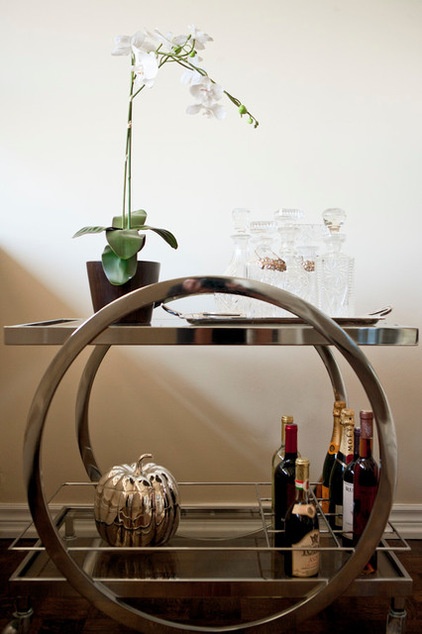
Celebrate cocktail hour. With Prohibition in force between 1920 and 1933, it’s no wonder the art deco age is often associated with clandestine imbibing, as the ban on alcohol drove people to underground parties and speakeasies, and to drink bootlegged spirits at home.
So add a touch of The Great Gatsby with a chrome drinks trolley or curved walnut cocktail cabinet adorned with a mirrored tray. Top it with angular crystal decanters, chrome cocktail shakers and stylish coupette glasses.
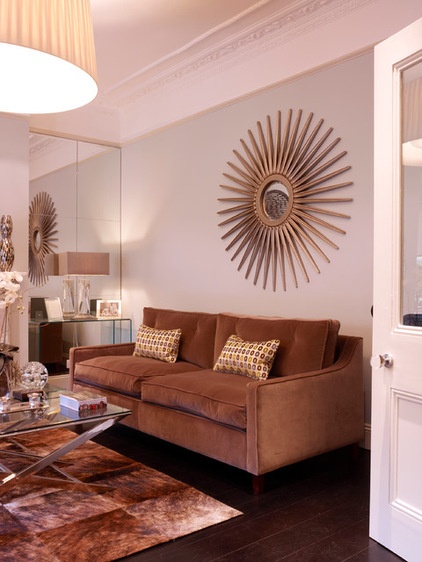
Weave in glass and mirrors. The sunburst mirror is a classic art deco piece with a nature motif and radiates elegance and optimism. Make sure you echo this with reflective surfaces elsewhere too, such as mirrored alcoves and a glass-topped coffee table.
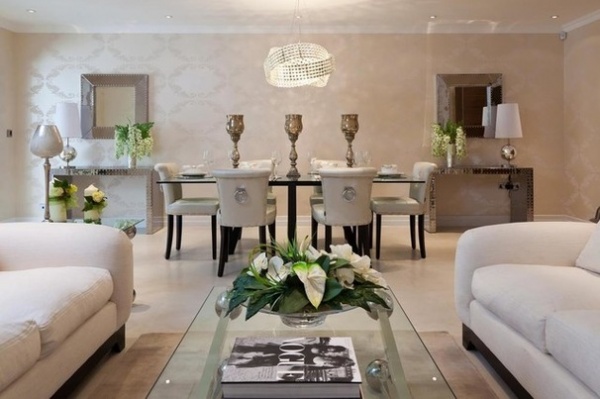
Buy pairs. Precision and symmetry were key elements of art deco design, so if you fall in love with a beautiful lamp, mirror or occasional table, consider buying two to keep your room scheme balanced.
This room also showcases a wide range of different materials — typical of the art deco era — and yet has a sense of cohesion, thanks to the neutral palette of taupe and oyster.
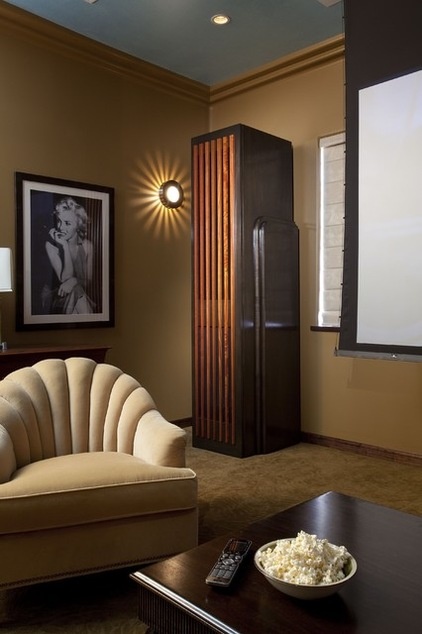
Take a seat. The quintessential art deco chair has clean lines, curved arms and sometimes a shell-shaped back or piping detail. Leather was considered a new material for upholstery, and some examples feature elements of chrome on the frame, too.
Many contemporary sofas sit well with art deco chairs, so don’t be afraid to mix eras. If you want to add a bit more quirkiness, be inspired by the golden age of Hollywood and use reclaimed cinema seats.
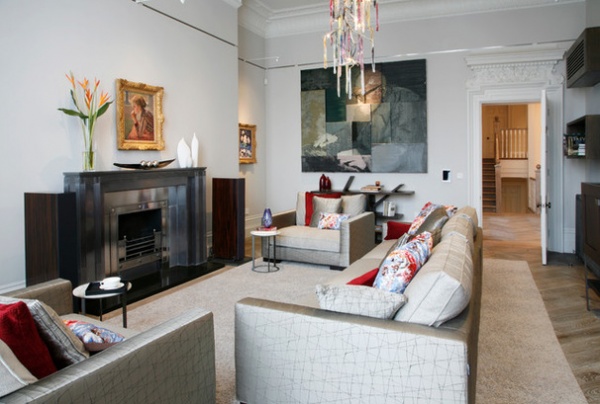
Create a fireplace focal point. Not many art deco fireplaces still survive today, yet their influence can be seen in many modern designs. Most were made from concrete and often featured beige or green tiling. If you love the deco look, go for a bold, rectangular design in highly polished chrome or marble and consider a stepped top with a central motif at the apex.
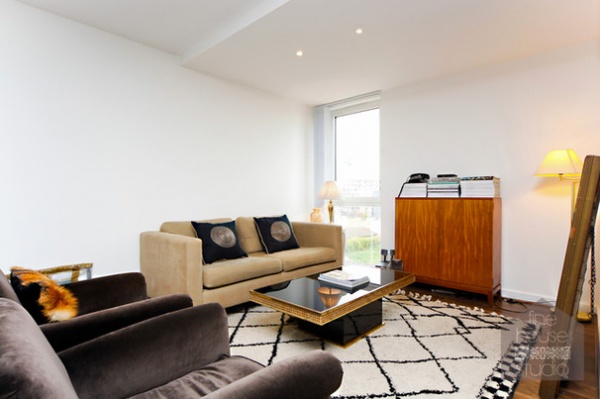
Choose a classic coffee table. In contrast to the ornate coffee tables of the Victorian era, art deco designs tended to be sleeker, with strong, geometric shapes and clean lines. The machine age heralded a huge increase in the types of materials available, from chrome and nickel to hardwoods (such as rosewood and ebony), metals (such as bronze and wrought iron) and even Bakelite, marble, glass and enamel.
As well as rectangular coffee tables, circular and hexagonal tables with mirrored or etched glass tops also became popular. Some designs mixed materials, such as wrought iron legs with a marble top. Emerging art deco designers, including Norman Bel Geddes, Eileen Gray and Pavel Janák, became highly sought after.
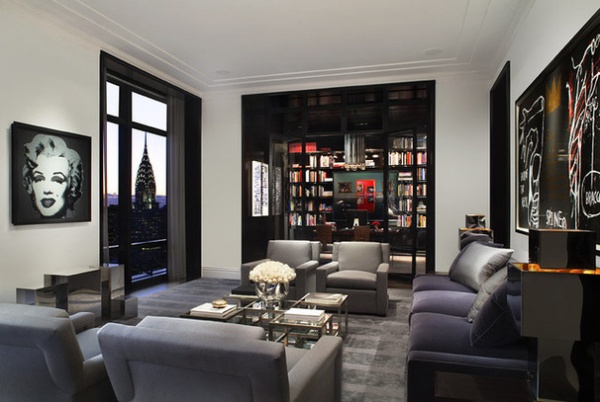
Pick a fail-safe color scheme. While many colors were used throughout the 1920s and 1930s, a smoky color palette featuring silver, metallic blues and charcoal perhaps best typifies the deco style. Highly lacquered finishes — mimicking the deep shine of ebony but at a much lower cost — combine well with these smoky hues and create an ultraluxurious look that echoes the aspiration for affluence in Depression-era America.
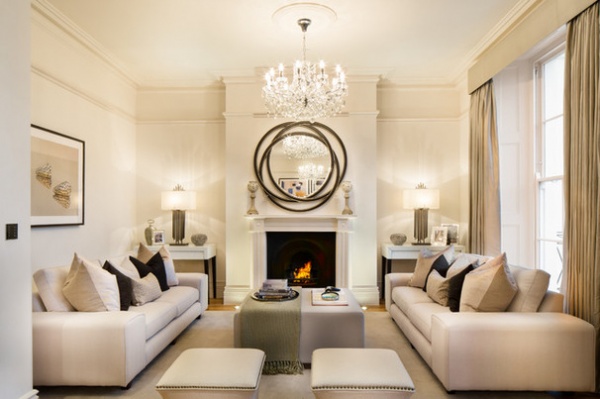
Light up your alcoves. While more decorative lighting, such as the Tiffany lamp, epitomized the earlier art nouveau period, the age of art deco saw geometric, angular shapes in chrome and glass rise to prominence. The stunning lamps seen here, for instance, with their skyscraper-like design, have a strong deco feel.
By the late 1920s and early 1930s, the glamour of the silver screen began to exert its influence too, and the flapper table lamp, inspired by Josephine Baker, was born, spawning many designs featuring the female form holding aloft a globe.
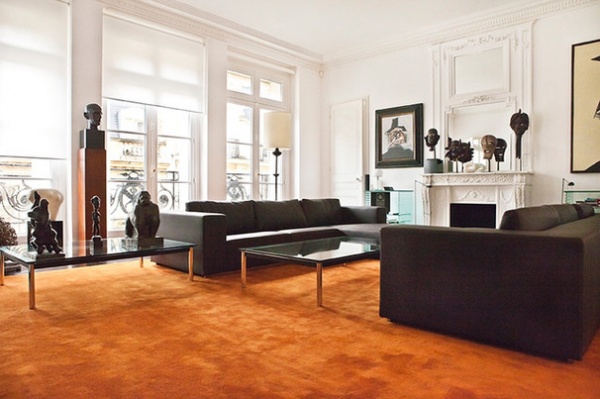
Introduce exotic sculptures. As travel started to become more and more accessible — at least to those with money — exotic pieces became highly covetable. Trinkets made from mother-of-pearl, animal skins and tortoiseshell became all the rage and started to appear in society homes, alongside African tribal art and sculptures inspired by recent Egyptian discoveries.
Tell us: Do you love art deco style? Share your ideas for incorporating the look at home in the Comments.
More:
8 Ways to Dress Rooms in Art Deco Drama
Art Deco, Art Nouveau, Arts and Crafts: What’s the Difference?
Related Articles Recommended












